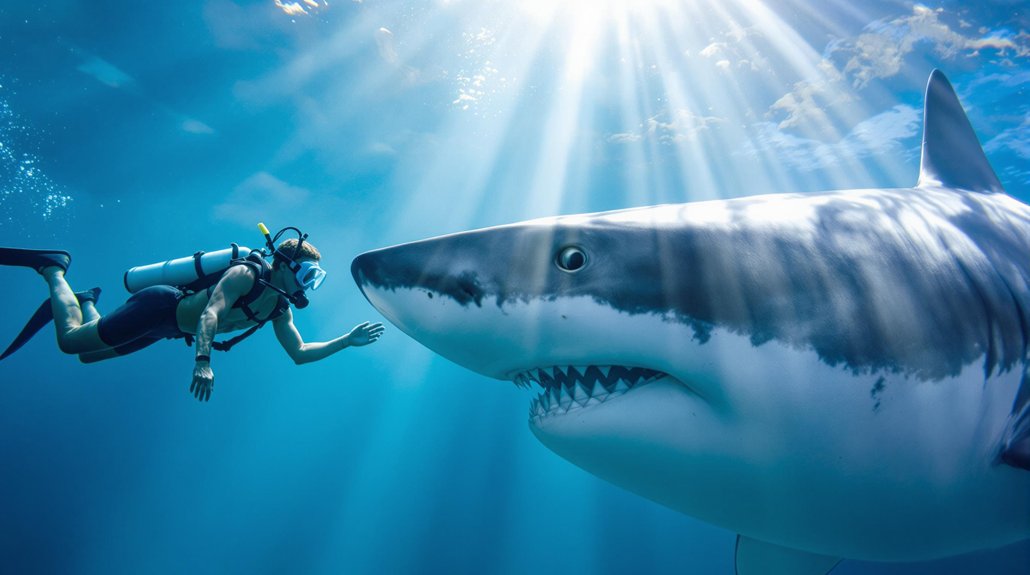Self-proclaimed “shark whisperers” claiming extraordinary abilities to communicate with sharks through physical touch and non-verbal cues have divided the scientific community, with marine biologists disputing the validity of these interactions while expressing serious safety concerns. The American Elasmobranch Society criticizes practitioners lacking academic credentials for misrepresenting shark behavior, while wildlife experts warn that staged encounters may stress marine animals and modify natural behaviors in dangerous ways, raising questions about conservation messaging versus entertainment value.
How do certain individuals claim to possess an extraordinary ability to communicate with one of the ocean’s most feared predators through touch and non-verbal cues? The ‘Shark Whisperer’ phenomenon has emerged as a controversial trend that divides marine scientists and raises significant wildlife safety concerns across the conservation community.
These self-proclaimed shark whisperers, popularized through mainstream media and documentaries including Ocean Ramsey’s Netflix film, claim unique abilities to interact safely with sharks through free diving, body language, and physical contact. The phenomenon blends conservation messaging with viral video content, creating dramatic footage that captivates online audiences and generates substantial social media followings for practitioners.
However, the scientific community remains deeply skeptical of these claims, which lack grounding in established research methods or peer-reviewed animal behavior studies. Marine biologists and shark researchers dispute the validity of alleged human-shark communication, while the American Elasmobranch Society emphasizes the importance of accurate knowledge dissemination and criticizes misleading statements about shark behavior.
Critics highlight serious misrepresentation issues, noting that some prominent figures marketed as scientists lack relevant academic credentials or published research in marine biology. The staged nature of many encounters, often conducted for tourism or media content, raises ethical questions about interference with natural shark behavior and potential misinformation regarding typical human-shark interactions.
Wildlife safety experts express mounting concerns that these spectacle-driven encounters place both participants and sharks at increased risk. Repeated close contact may stress marine animals or modify their natural behaviors in dangerous ways, while marketed experiences may misrepresent actual safety levels to paying customers. Legitimate researchers studying sharks document behaviors like breaching behavior which occur unpredictably and suggest complex ecological functions that remain largely unknown. The urgency of conservation efforts has intensified as global populations of sharks have declined by over 90% in the last 50 years due to commercial fishing and demand for shark fins.
The practice frequently involves offering paid guided shark dives and conducting underwater encounters that prioritize entertainment value over scientific accuracy. Although practitioners justify their activities as conservation efforts aimed at reducing public fear and changing negative shark stereotypes, the scientific community advocates for evidence-based approaches rather than anecdotal claims.
This divide reflects broader tensions between conservation messaging through dramatic storytelling and rigorous scientific methodology, as media coverage often blurs distinctions between legitimate research and entertainment-focused content, potentially misleading public understanding of marine wildlife interactions.





